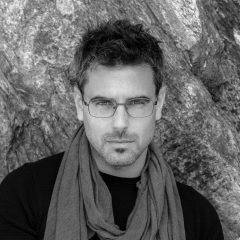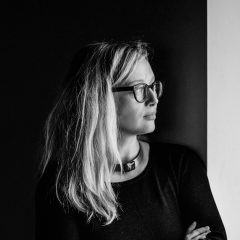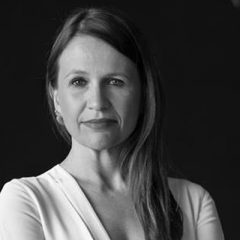
Biodiversity plays an essential role in the survival of our planet – the various species ensure that there are always food sources available to all. In our cities, however, simple things like dirt, fungi, lichen and insects are unwanted elements of nature – they are out of place in cityscapes. Our cityscapes have been designed predominately free of the biodiversity posed by nature. Yet, our requirements for types of cityscapes are changing. Architecture containing nature prevails: we seek to use plants and natural elements in architectural structures to improve the ecology of urbanites. We want to observe nature, to gather around and to lend a hand in its processes. Our tribal ancestry may have left us with the instinct to come together this way.
How can we integrate resources provided by nature in architecture for greener future cities?
In the context of future cityscapes, multi-purposing of resources and access to nutrition are highly desirable values. We face challenges of renewable energy and materials, contamination from chemical compounds in our water and air; as well as lack of nutrition in our food caused by depleted top soil by traditional farming. Large scale schemes to solve these challenges and rebuilding the top soil is not always a viable option in cities, but there are other innovative multi-purpose schemes just right for cities of all sizes –
Algae.
This micro plant-like organism rules the kingdoms of nutrition and of multi-purpose resources. Algae are used for grey water and air purification, for sequestrating CO2, for making new materials and textile dies, and their bio-waste is an excellent source of biofuel. Types of algae are a major superfood, packing vitamins, minerals, proteins and all the other good stuff more than any other food source in the world. These are used as ingredients in vitamins, health foods, as well as in making salt and as dietary supplements. Algae grows in fresh and salt water, requiring sunlight, carbon dioxide and tiny amounts of minerals and it multiplies faster than any plant species. It is easy to grow and to harvest given the right conditions. All around, it is the perfect resource for cities.
All we need to do is integrate algae in our architecture.
The GSS19 Budapest hosted by IADS proposes to design a prototype for algae use in architecture.
At the GSS19/ Budapest, the participants will experience hands-on working with algae, designing with digital fabrication tools and 3D printing technology, and constructing a temporary space which will demonstrate the effects of interplay of nature and contemporary technologies in architectural structures.
IAAC Global Summer School is a full-time two weeks course, 1-14 July 2019, that provides both practical and theoretical knowledge. The program is led by expert tutors, combined with lectures by renowned professionals and academics relevant to the topics to be treated during the course. These will be broadcasted in the different node-cities, all globally connected. Participants will join a global agenda and an international laboratory at their disposal to test their design hypothesis, understanding how design conclusions derived locally can be tested and evolved globally in the different cities where other teams reside.

Architect
Gyorgy is an architect and a creative thinker, Founding Partner of the architecture practice, Studio Synexys. He graduated from IAAC, where he was focusing on the development of prototypes that promote environmental, economic and social sustainability. Gyorgy started his professional career in the city of Barcelona, where he worked for internationally renowned architectural studios for almost 10 years. During this period, as a designer, researcher and project manager, he gathered extensive experience in the field of interior, residential, commercial and high-rise architecture. In addition to his office work, he took part in several academic research projects, launched by Harvard GSD and IAAC.

Design Philosopher
Karina is the Founding Director of the Institute of Advanced Design Studies, Budapest, Hungary. She is a design philosopher, researcher, creative thinker and an innovation strategist with extensive experience working within R&D, product development and business innovation. Karina attained her doctorate in Design with a focus on Sustainable Design at The Royal Danish Academy of Fine Arts in 2016. She works on development for various green innovation projects and initiatives, as strategist, board member, as well as she is a design educator and guest lecturer.

After graduating from the Turin Polytechnic in Italy, Claudia Pasquero moved to London to study at the Architectural Association. In London, she worked as an architect for international offices such as Ushida Findlay Partnership and Erick van Egeraat Architects before co-founding the ecoLogicStudio in 2006. Claudia has completed a public library in Cirie’ (Turin) among other projects and she has been exhibiting ecoLogicStudio work at the Venice Architectural Biennale in 2006, in 2008 and 2010, where she has been presenting three different interacting prototypes, investigating the boundaries between architecture, science and tradition.
Claudia has lectured and taught internationally; been Unit Master at the AA in London from September 2007 to September 2012; Visiting Lecturer at the IAAC, Barcelona since 2006; Hans and Roger Strauch Visiting Critic at Cornell University, Ithaca, NY in 2011/2012; director of CyberGardening the City AAMilan from September 2010; Unit Master for the Graduate School in Urban Design at the Bartlett, UCL London from September 2012 and Director of Fabrication Ecologies at the IAAC in Barcelona since October 2012.
After the publication of the “The World Dubai Marine Life Incubators” in 2010; she is now co-authoring a book, dedicated to ecoLogicStudio’s research, edited by Routledge, titled “Systemic Architecture: operating manual for the self-organising city”.
Claudia is the director of ecoLogicStudio an architectural and urban design studio co-founded in London with Marco Poletto. In the past few years the studio has built up an international reputation for its innovative work on ‘systemic’ design; ecoLogicStudio’s method is defined by the combination and integration of systemic thinking, bio and socio-logic research, parametric design and prototyping. Completed projects include a public library, private villas, large facades and eco-roofs; ecoLogicStudio has developed prototypes and installations for the most important Architectural Biennales, including Venice in 2008 and 2010 [STEMv3.0 the lagoon experiment, The ecological Footprint grotto], Seville [STEMcloud], Istanbul [Fibrous room] and Milan Fuorisalone [ Aqua Garden]. ecoLogicStudio runs international Workshops and cultural activities like the cyber-Gardening the City project in Milan, the Architectural Machines Symposium at the AA in 2009, the Fibrous Structures workshop, Prototyping the city in Turin, ICAMP in Messina and the Tropic Playground in Linz, to name a few.
The work of ecoLogicStudio has featured in many international architectural books and magazines like the New Arcadians: Emerging UK Architects by Lucy Bullivant; ecoLogicStudio has independently published booklets like the cyber-Gardens and the AA INTER10 09/10 book titled “World Dubai Marine Life Incubators”. All the research work has been published in 2012 by Routledge is a new book titled “Systemic Architecture”.

Architect / Designer
Gustavo Pernia is an architect and urban planner with +10 years of professional and academic experience in architecture & design across New Zealand, Spain, Italy, and Venezuela. He has collaborated as a multidisciplinary designer for the built and digital environment with awarded projects and design studios. His focus at architectural design and digital visualization as a cross-media field has led him to join in design projects that go from graphics and interface design to digital fabrication of medium-density housing, from digital products to urban planning & design projects. He has spent the last months initiating his own studio, QUARK, merging architecture and interactive storytelling using game engines, and now helps Hunter Douglas architectural products in developing their digital technical library for Latin America.

Coming soon…

Coming soon…
Institute of Advanced Design Studies (IADS) is a pioneering international institute for education in Advanced Design for Sustainability. IADS unique post-disciplinary year’s course gathers students from social and natural sciences to engage in designing solutions for a balanced human ecology. Theme-based coursework explores how scientific and technological discoveries and developments can be best applied to benefit humanity and the environment in diverse types of contexts. An emphasis is placed on ethical ways of designing and Design Thinking across fields of disciplines and practices.
IaaC Global Summer School 2019 Budapest takes place at Institute of Advanced Design Studies – Art Quarter Budapest
Address:
Nagytétényi út 48-50.
1222 Budapest
Hungary
IAAC GSS is open course for students and professionals interested in architecture, urban planning, digital fabrication, design, etc. No previous skills are required, although CAD design, programming and digital fabrication skills are welcome. The official language of the course is English. After the course, the participants will become familiar with parametric software, data visualization and the use of digital machines.
After the course, the participants will have gained theoretical and applicative knowledge about advanced design strategies. They will be familiar with parametric software, data visualization and use of digital machines. The last day of course participants will join a presentation of developed projects reviewed by a renown jury and will receive a Global Summer School Diploma.
Each participant is responsible to investigate which documents are required via the embassies in their country of origin. The school will provide a confirmation letter regarding the participation to the course, and will assist where possible the visa process.
Fee for Budapest is 550 € and includes all material costs needed for the course. No additional registration fee is required. Flight tickets, accommodation and food are not included in the fee. Each participant should bring his/her own computer with the software installed. Further details about the software will be given to the participants upon acceptance.
In order to register to the Global Summer School, participants need to submit the online application form, where they will be asked to fill their personal details and to upload a CV. Portfolio is not required. GSS dates are from 1-14 of July 2019 and applications are open until May 2019.
NODE NO MORE ACTIVE